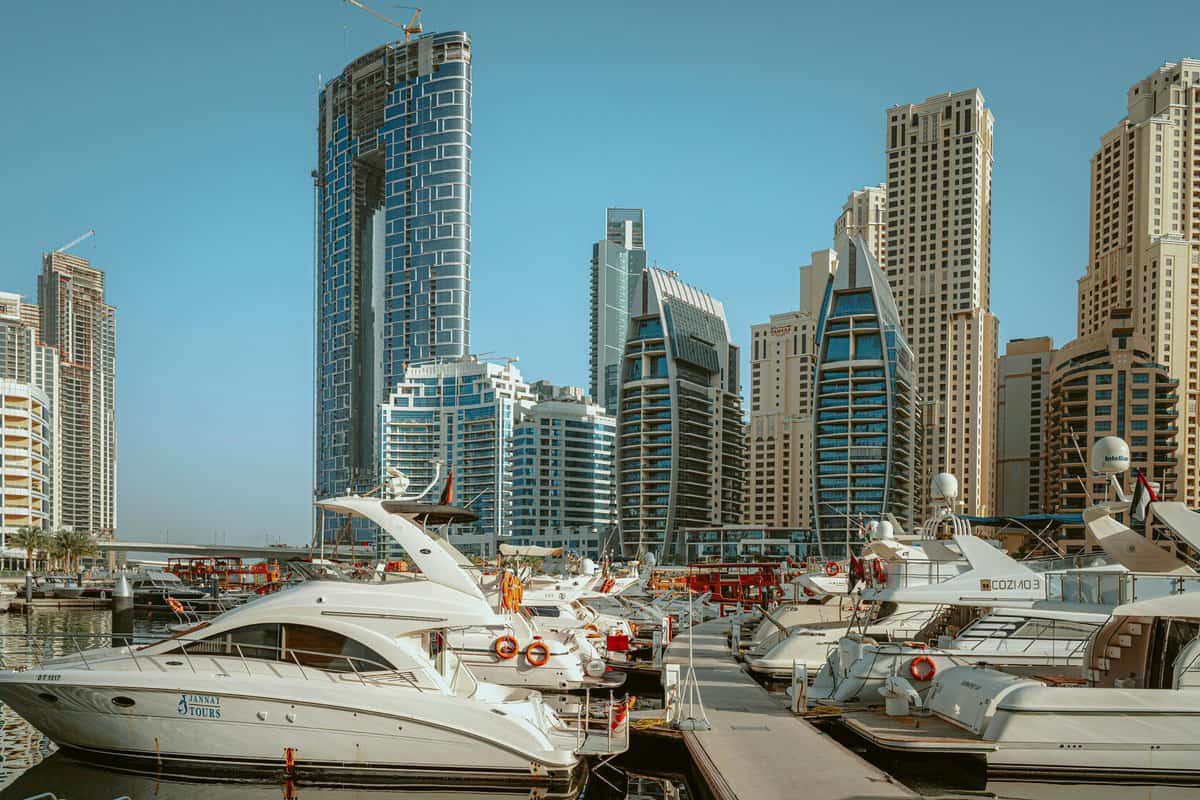Economic Life in Dubai
Tips for Managing Expenses in Dubai for Expats
Dubai Marina is one of the most sought-after residential areas in Dubai, offering a vibrant lifestyle and stunning waterfront views. This bustling neighborhood is known for its high-rise buildings, luxurious amenities, and a plethora of dining and entertainment options. However, like any place, it has its advantages and disadvantages. This article provides a detailed look at the pros and cons of living in Dubai Marina to help you make an informed decision.
Dubai: An Expensive City
Dubai is renowned for its opulent lifestyle, but it is also known for its high cost of living. According to recent statistics, the average monthly cost of living for a single expat ranges from AED 8,000 to AED 12,000, depending on lifestyle and accommodation choices. This includes housing, utilities, transportation, groceries, dining out, and entertainment. For a family, these costs can easily double.
The main contributors to the high cost of living in Dubai include
- Housing: Dubai is renowned for its opulent lifestyle, but it is also known for its high cost of living. According to recent statistics, the average monthly cost of living for a single expat ranges from AED 8,000 to AED 12,000, depending on lifestyle and accommodation choices. This includes housing, utilities, transportation, groceries, dining out, and entertainment. For a family, these costs can easily double.
- Transportation: While public transport is relatively affordable, owning a car can be expensive due to high fuel costs, insurance, and maintenance.
- Food: Eating out, especially in high-end restaurants, can be costly. However, there are more affordable options available if you know where to look.
- Utilities: Air conditioning, which is essential in Dubai’s climate, can drive up utility bills.

Economic Life as an Expat in Dubai
Living in Dubai as an expat can be both exciting and daunting. On one hand, the city offers a high standard of living, excellent infrastructure, and numerous opportunities for professional growth. On the other hand, the cost of living can be a significant concern. Here are some solutions and tips to help manage your expenses effectively:
10 Tips for Managing Expenses in Dubai for Expats
- Create a Budget
The first step to managing your expenses is to create a detailed budget. Track your income and categorize your expenses into housing, utilities, groceries, transportation, entertainment, and savings. This will help you identify areas where you can cut costs and ensure you are living within your means.
- Opt for Shared Accommodation
Renting an apartment in Dubai can be expensive, but shared accommodation can significantly reduce your housing costs. Platforms like Homebook offer a wide range of shared and private rooms that are affordable and budget-friendly for you. By sharing an apartment, you can save on rent and utilities while enjoying the benefits of living in a community.
- Use Public Transport
Dubai’s public transport system, including the metro, buses, and trams, is efficient and affordable. Using public transport instead of owning a car can save you a considerable amount of money on fuel, insurance, and maintenance.
- Shop Smart
Grocery shopping can be expensive if you are not careful. Compare prices at different supermarkets and take advantage of discounts and promotions. Local markets and hypermarkets often offer better deals than high-end grocery stores. Additionally, buying in bulk can save you money in the long run.
- Cook at Home
Eating out frequently can quickly add up. Cooking at home is not only healthier but also more economical. Plan your meals, make a shopping list, and stick to it. You can also prepare meals in bulk and freeze them for later, saving time and money.
- Take Advantage of Discounts and Offers
Dubai has numerous discounts and offers available throughout the year. From dining to entertainment, keep an eye out for special deals, coupons, and loyalty programs that can help you save money. Websites and apps dedicated to discounts can be particularly useful.
- Manage Utility Costs
Utility bills, especially for air conditioning, can be high. To manage these costs, ensure your home is well-insulated, use energy-efficient appliances, and be mindful of your consumption. Simple habits like turning off lights and appliances when not in use can make a significant difference.
- Limit Luxury Expenses
Dubai offers many luxury experiences, but indulging in them frequently can strain your budget. Prioritize your spending and limit luxury expenses to special occasions. Instead, explore free or low-cost activities such as parks, beaches, and cultural events.
- Plan Your Finances
Effective financial planning is crucial for managing expenses. Set aside a portion of your income for savings and emergencies. Consider consulting a financial advisor to help you with long-term financial goals such as investments, retirement planning, and tax management.
- Health and Insurance
Healthcare in Dubai can be expensive without insurance. Ensure you have adequate health insurance coverage to avoid unexpected medical expenses. Shop around for insurance plans that offer the best value for your needs.
FAQ
1. How can we reduce costs in Dubai?
Reducing costs in Dubai involves creating a budget, opting for shared accommodation, using public transport, cooking at home, and taking advantage of discounts and offers. Additionally, managing utility costs and limiting luxury expenses can help keep your budget in check.
2. Is it cheaper to live in shared accommodation in Dubai?
Yes, living in shared accommodation is generally cheaper than renting a private apartment. Shared accommodation allows you to split the cost of rent and utilities, making it a cost-effective option for expats. Homebook lists various shared and private room options that cater to your budget.
3. What are some affordable areas to live in Dubai?
Some affordable areas to live in Dubai include International City, Al Nahda, Deira, and Bur Dubai. These areas offer relatively lower rental prices compared to more central or upscale neighborhoods. Of course, with Homebook, you can find the right house for you in slightly more expensive areas of Dubai like Marina, JBR and JLT at the most reasonable price.
4. How can I save on grocery shopping in Dubai?
To save on grocery shopping, compare prices at different supermarkets, buy in bulk, and take advantage of discounts and promotions. Local markets and hypermarkets often offer better deals than high-end grocery stores.
5. Are there any free or low-cost activities in Dubai?
Yes, there are many free or low-cost activities in Dubai, such as visiting parks, beaches, and cultural events. Exploring the city’s public spaces and taking advantage of community events can provide entertainment without straining your budget.
6. What should I consider when choosing health insurance in Dubai?
When choosing health insurance in Dubai, consider the coverage offered, including hospitalization, outpatient services, and emergency care. Compare different plans to find one that offers the best value for your needs and budget. Ensuring you have adequate health insurance can protect you from unexpected medical expenses.
Living in Dubai as an expat offers numerous opportunities, but managing expenses is crucial to enjoying your time in this vibrant city. By following the tips outlined in this guide, you can make the most of your economic life in Dubai while keeping your finances in check. Homebook is here to support you in finding affordable housing options, making your transition to life in Dubai smoother and more enjoyable. With careful planning and smart spending, you can thrive in one of the world’s most exciting cities.
